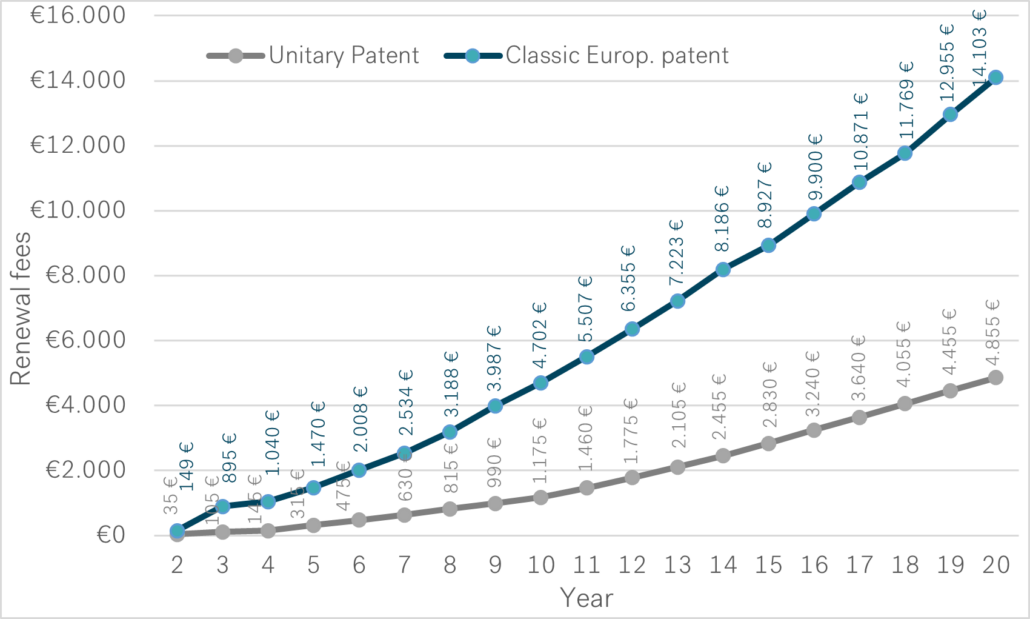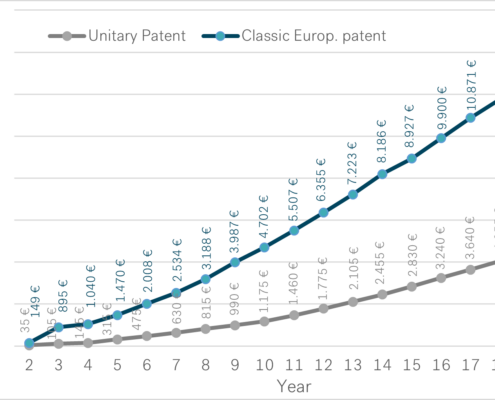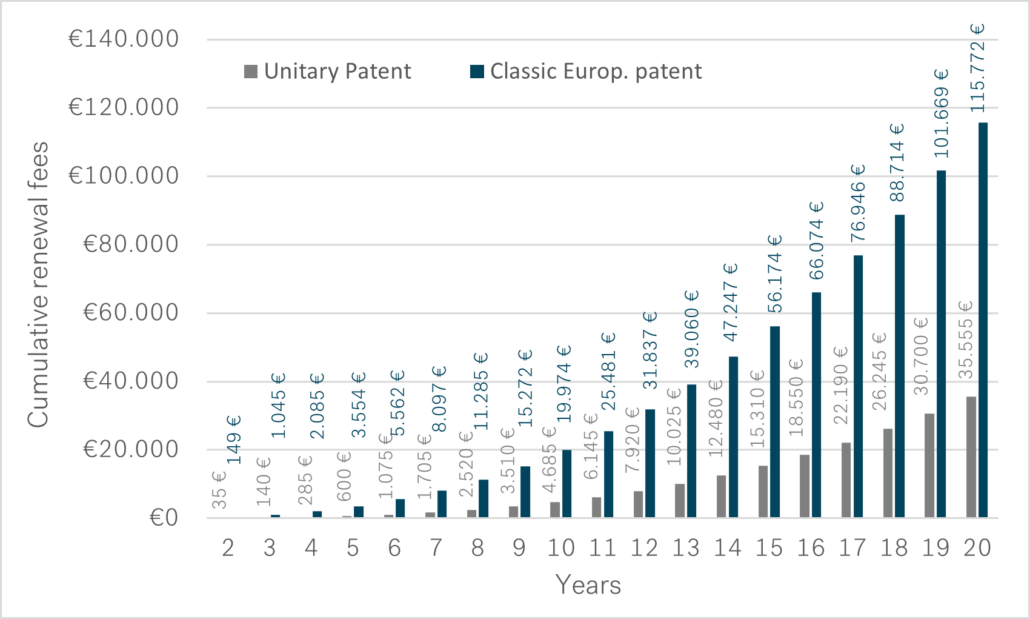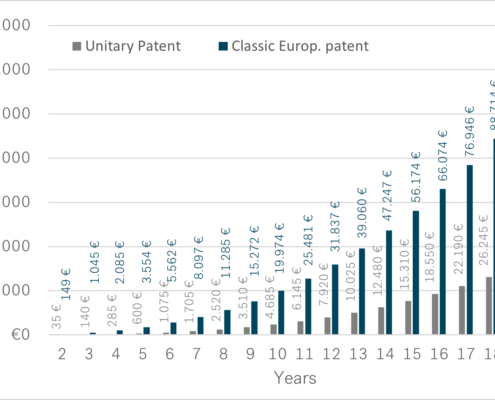In addition to the European patent with unitary effect (Unitary Patent), which also develops protection in Germany, the existence of a national German property right remains, which will presumably play an even more important, flanking role in the future.
Partial elimination of the double protection prohibition
According to the previous regulation of the IntPatÜG concerning the European bundle patent, if the subject matter of a German patent is an invention for which a European bundle patent with the same priority has been granted to the same inventor or his legal successor with effect for the Federal Republic of Germany, then the German patent, to the extent that it protects the same invention as the European bundle patent, no longer has any effect from a certain point in time after the grant of the bundle patent (double protection prohibition).
According to the new regulation of the IntPatÜG of 2021, the double protection prohibition only applies to those European bundle patents for which an exclusion from the Unified Patent System has been validly declared (so-called “opt-out”), since the Unitary Patent does not itself provide for double protection in relation to national patents. However, if the declaration of exclusion is withdrawn (so-called “opt-in”), the double protection prohibition remains in force and the German national property right remains ineffective in the overlap of the scope of protection.
As a result, for all Unitary Patents and all European bundle patents for which no explicit exclusion from the new Unitary Patent System has been declared, a national German patent granted after the start of the new system can also have effect in the overlap of the scope of protection alongside the European patent.
This opens up strategic advantages for owners.
Strategic advantages
At present, the new Unitary Patent System for nullity actions and for infringement actions is associated with a great deal of uncertainty. For example, it is difficult to estimate the expected case law and the conduct of proceedings in the new system. In contrast, there is a proven national German system consisting of the Federal Patent Court and the District Courts, which have developed a solid and predictable case law over many years. For plaintiffs, this means an increased level of security. In addition, Germany has the largest market within Europe and the participating states of the Unitary Patent System.
Owners of a German national patent and a European patent can thus choose the system for an action and, especially at the beginning of the new Unitary Patent System, can fall back on a proven action system which covers the most economically relevant area of Europe.
In addition, a German national patent provides a valuable fall-back position in the event that the Unitary Patent is not upheld. If the worst comes to the worst, a German national patent thus offers the possibility for a German court to judge patentability (differently) than the UPC for the market in Germany on the basis of previous proven case law.
Advantages of parallel German application
In addition, the German patent system has two other special features.
First, a German patent application can be filed in parallel with a European patent application from an international patent application (PCT).
Furthermore, after filing a German patent application, a request for examination can be deferred for a maximum of 7 years after the filing date.
Thus, there is the possibility to let a German patent application rest at comparatively low office fees and to pursue a Unitary Patent in parallel. In case of failure of the European patent application or loss of the Unitary Patent or new findings justifying an amended scope of protection, an examination request for the German patent application could then be filed at a later date, thus continuing to cover a substantial part of Europe to a relevant extent.
Looking into the future, it should be added that after the discontinuation of the option of opting-out after a transitional period of currently 7 years, it is intended that all European patents with or without unitary effect for the participating EU states will fall under the exclusive jurisdiction of the UPC and thus, at the latest, a German property right application will then be the only way to bring the invention under the proven jurisdiction of the German courts.
Thus, in view of the new Unitary Patent System, the German national patent is already gaining a strategic importance that should not be underestimated when deciding where to file an application, and applicants should be aware of this.
We will be happy to provide you with customized advice on the strategic options.



